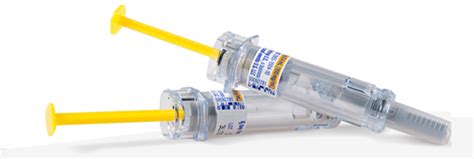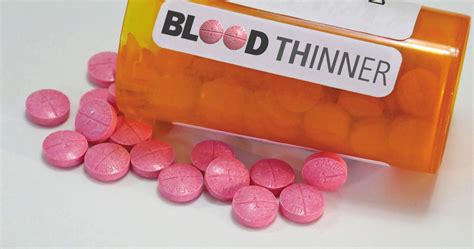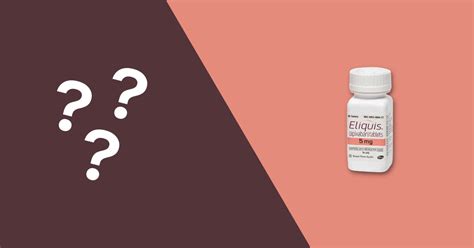Intro
Discover how blood thinner shots work, their benefits, and potential risks, including anticoagulant therapy, clot prevention, and stroke prevention, to manage conditions like deep vein thrombosis and atrial fibrillation.
The importance of blood thinners cannot be overstated, particularly for individuals at risk of developing blood clots or experiencing cardiovascular events. Blood thinner shots, also known as anticoagulants, play a crucial role in preventing the formation of blood clots and reducing the risk of stroke, heart attack, and other cardiovascular conditions. In this article, we will delve into the world of blood thinner shots, exploring their benefits, working mechanisms, and key information related to their use.
For individuals with certain medical conditions, such as atrial fibrillation, deep vein thrombosis, or pulmonary embolism, blood thinner shots can be a lifesaver. These medications work by preventing the formation of blood clots or stopping existing clots from growing. By reducing the risk of blood clots, blood thinner shots can help prevent serious cardiovascular events, including stroke, heart attack, and even death. With the rising incidence of cardiovascular disease worldwide, the importance of blood thinner shots has never been more pressing.
The use of blood thinner shots has become increasingly common in recent years, particularly among older adults and individuals with a history of cardiovascular disease. Despite their importance, many people remain unclear about the benefits and risks associated with blood thinner shots. In this article, we will provide an in-depth exploration of blood thinner shots, including their benefits, working mechanisms, and key information related to their use. Whether you are considering blood thinner shots for yourself or a loved one, this article aims to provide a comprehensive guide to help you make informed decisions about your health.
Blood Thinner Shots: How They Work

Types of Blood Thinner Shots
There are several types of blood thinner shots available, each with its own unique benefits and risks. Some of the most common types of blood thinner shots include: * Heparin: This is one of the most commonly used blood thinner shots, particularly in hospital settings. Heparin works by activating antithrombin, a protein that helps prevent blood clotting. * Low-molecular-weight heparin: This type of blood thinner shot is similar to heparin but has a lower molecular weight. It is often used to prevent blood clots in patients undergoing surgery or experiencing acute coronary syndrome. * Fondaparinux: This is a synthetic blood thinner shot that works by inhibiting factor Xa, a protein involved in blood clotting.Benefits of Blood Thinner Shots

Risks and Side Effects
While blood thinner shots can be highly effective in preventing blood clots and reducing the risk of cardiovascular events, they are not without risks and side effects. Some of the most common risks and side effects associated with blood thinner shots include: * Bleeding: Blood thinner shots can increase the risk of bleeding, particularly in individuals taking other medications that affect blood clotting. * Allergic reactions: Some individuals may experience allergic reactions to blood thinner shots, including hives, itching, and difficulty breathing. * Interaction with other medications: Blood thinner shots can interact with other medications, including aspirin, ibuprofen, and warfarin, increasing the risk of bleeding and other side effects.Who Needs Blood Thinner Shots?

How to Take Blood Thinner Shots
Taking blood thinner shots requires careful attention to detail to ensure safe and effective use. Some of the key steps to follow when taking blood thinner shots include: * Follow the prescribed dosage: It is essential to follow the prescribed dosage and administration schedule to minimize the risk of side effects and ensure effective treatment. * Monitor blood tests: Regular blood tests are necessary to monitor the effectiveness of blood thinner shots and adjust the dosage as needed. * Report side effects: Individuals taking blood thinner shots should report any side effects or concerns to their healthcare provider promptly.Alternatives to Blood Thinner Shots

Future Directions
The field of blood thinner shots is constantly evolving, with new medications and technologies being developed to improve treatment outcomes and reduce the risk of side effects. Some of the future directions in the field of blood thinner shots include: * Development of new anticoagulants: Researchers are working to develop new anticoagulants that are more effective and safer than existing medications. * Improved dosing strategies: Improved dosing strategies are being developed to minimize the risk of side effects and ensure effective treatment. * Personalized medicine: Personalized medicine approaches are being explored to tailor treatment to individual needs and reduce the risk of side effects.Conclusion and Next Steps

We invite you to share your thoughts and experiences with blood thinner shots in the comments section below. Have you or a loved one used blood thinner shots? What were your experiences? Share your story to help others make informed decisions about their health.
What are blood thinner shots?
+Blood thinner shots, also known as anticoagulants, are medications that prevent the formation of blood clots or stop existing clots from growing.
Who needs blood thinner shots?
+Blood thinner shots are typically prescribed for individuals at risk of developing blood clots or experiencing cardiovascular events, such as those with atrial fibrillation, deep vein thrombosis, or pulmonary embolism.
What are the benefits of blood thinner shots?
+The benefits of blood thinner shots include reduced risk of blood clots, improved circulation, and reduced risk of death from cardiovascular events.
What are the risks and side effects of blood thinner shots?
+The risks and side effects of blood thinner shots include bleeding, allergic reactions, and interaction with other medications.
How do I take blood thinner shots?
+To take blood thinner shots, follow the prescribed dosage and administration schedule, monitor blood tests, and report any side effects or concerns to your healthcare provider.
